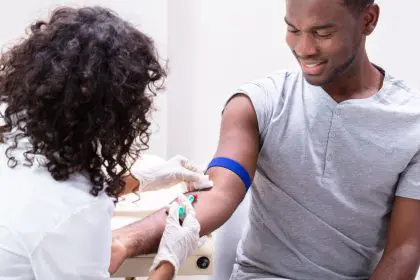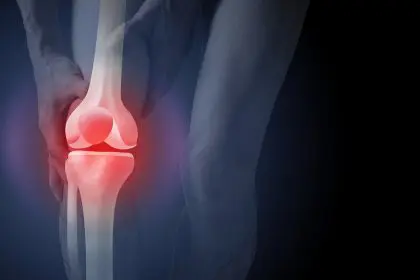Dr. Sarah Thompson, chief urologist at Metropolitan Cancer Center, explains that family history plays a crucial role in testicular cancer risk. Men with close relatives who experienced testicular cancer face significantly higher risks. This genetic predisposition makes regular screening especially important for those with family history.
Early development impacts
Medical research reveals that conditions during early development can influence cancer risk later in life. Cryptorchidism, where testicles don’t properly descend before birth, creates lasting impact on cancer risk. While corrective surgery helps, continued monitoring remains essential throughout life.
The immune system connection
Recent studies highlight connections between immune system function and testicular cancer risk. Dr. James Chen explains that compromised immunity, whether from medical conditions or other factors, can increase vulnerability to abnormal cell development. Understanding this relationship helps identify those needing closer monitoring.
Previous cancer implications
Having experienced testicular cancer once significantly impacts future risk assessment. Medical experts emphasize the importance of continued vigilance after successful treatment. Regular monitoring helps catch any potential recurrence early, when treatment proves most effective.
Age-related considerations
While testicular cancer can occur at any age, certain age groups face higher risks. Young adults particularly need awareness of risk factors and warning signs. Understanding age-related risk patterns helps target screening efforts effectively.
Environmental influences
Research continues revealing connections between environmental factors and cancer risk. Exposure to certain chemicals or conditions may influence cancer development. Understanding these environmental risks helps individuals make informed lifestyle choices.
Physical activity impact
Recent studies suggest connections between physical activity levels and cancer risk. Regular exercise appears to influence hormone levels and immune function, potentially affecting cancer development risk. This understanding adds another dimension to prevention strategies.
Occupational considerations
Certain occupations may present increased risk factors through chemical exposure or other conditions. Understanding these occupational risks helps individuals take appropriate precautions and maintain proper monitoring schedules.
Lifestyle factors
While some risk factors remain beyond control, lifestyle choices can influence overall cancer risk. Maintaining healthy weight, proper nutrition, and regular exercise contributes to prevention efforts. These factors become especially important for those with other risk factors.
The importance of self-examination
Medical experts emphasize that regular self-examination plays crucial roles in early detection. Understanding proper examination techniques and maintaining regular schedules helps identify potential problems early. This simple practice often leads to earlier diagnosis and better outcomes.
Understanding detection methods
Medical science continues advancing detection capabilities for testicular cancer. Modern imaging techniques provide detailed views of suspicious areas, while blood tests help track specific markers indicating potential cancer development. These tools, combined with physical examination, create comprehensive screening approaches.
The role of regular screening
Dr. Michael Foster explains that consistent medical screening proves especially important for men with known risk factors. Regular examinations by healthcare providers complement self-examination routines. This combined approach offers the best chance for early detection.
Hormone level implications
Research reveals complex relationships between hormone levels and cancer risk. Understanding these connections helps medical professionals identify those needing closer monitoring. Regular hormone level assessment may provide additional early warning signs.
Treatment advances
Modern treatment options continue improving, especially when cancer is detected early. Surgical techniques have become more precise, while radiation and chemotherapy protocols show increasing effectiveness. These advances make early detection even more crucial for optimal outcomes.
Recovery considerations
Understanding recovery processes helps individuals prepare for potential treatment. Physical recovery combines with emotional support needs during treatment and afterward. Comprehensive support systems play crucial roles in successful outcomes.
Future screening developments
Medical research continues advancing understanding of testicular cancer risk factors and detection methods. New screening techniques under development may offer earlier or more accurate detection possibilities. These advances promise improved prevention and treatment options.
Supporting emotional health
The psychological impact of cancer risk or diagnosis requires attention alongside physical health. Support systems, including medical professionals, family, and support groups, play vital roles in overall well-being. Understanding available resources helps individuals navigate challenging situations.
Prevention strategies
While some risk factors cannot be changed, various prevention strategies help reduce overall risk. Regular exercise, proper nutrition, and stress management contribute to general health maintenance. These factors support immune function and overall well-being.
Expert recommendations
Leading medical professionals emphasize several key points for testicular cancer awareness:
Regular self-examination remains crucial for early detection Prompt medical attention for any concerning changes Maintaining regular medical screening schedules Understanding personal risk factors Following recommended prevention strategies
Success stories in early detection
Many individuals credit early detection with successful treatment outcomes. These experiences emphasize the importance of awareness and prompt medical attention. Learning from others’ experiences helps reinforce the importance of regular monitoring.
Building awareness
Medical professionals stress the importance of open discussion about testicular cancer. Reducing stigma around the topic encourages earlier medical attention when concerns arise. This openness contributes to better outcomes through earlier detection and treatment.
The role of medical partnerships
Establishing strong relationships with healthcare providers supports better health monitoring. Regular communication allows for personalized risk assessment and screening recommendations. These partnerships prove especially valuable for those with increased risk factors.
Looking toward the future
Ongoing research continues revealing new understanding about testicular cancer risk factors and treatment. Medical advances promise improved detection methods and treatment options. This progress offers hope for even better outcomes through early detection and treatment.
Community support importance
Support networks play crucial roles in cancer prevention and treatment. Community resources provide education, support, and assistance navigating healthcare systems. Understanding available resources helps individuals access needed support.
Remember that while risk factors help identify those needing closer monitoring, testicular cancer can affect anyone. Regular self-examination combined with appropriate medical screening provides the best protection through early detection. Maintaining awareness and promptly addressing concerns supports optimal outcomes through early intervention.
Medical professionals emphasize that successful treatment often depends on how early cancer is detected. Understanding risk factors and maintaining proper screening routines helps ensure early detection when treatment proves most effective. This knowledge empowers individuals to take charge of their health through informed decisions and appropriate preventive measures.














